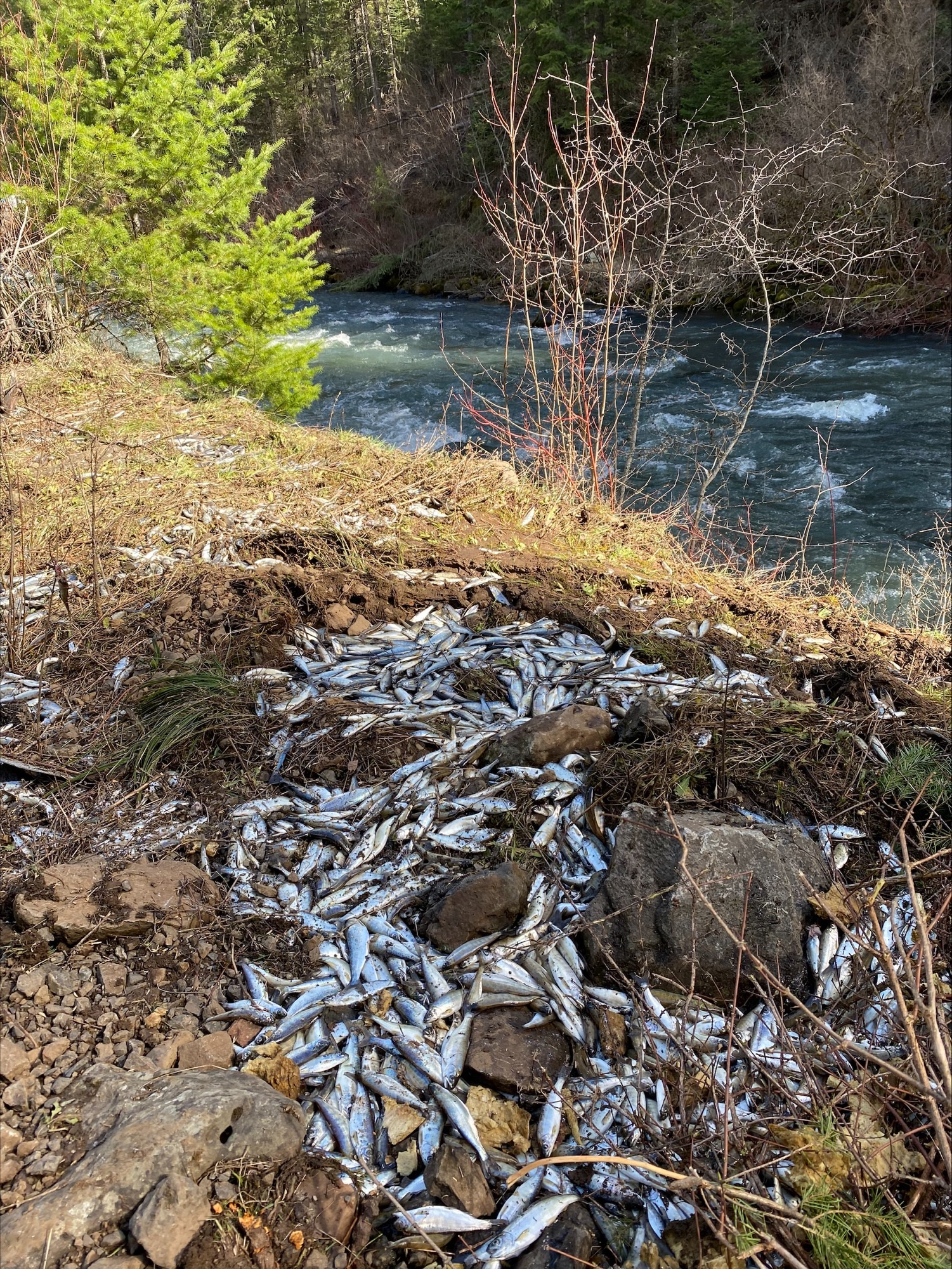Colorado has reported its first wolf-livestock depredation since implementing a controversial voter-enacted proposition to reintroduce wolves in the Centennial State. In December, Colorado Parks & Wildlife (CPW) released 10 wolves captured from Oregon in Grand and Summit Counties. Now, some of those wolves are responsible for killing a rancher’s calf.
According to a CPW press release, a landowner in Grand County reported a possible depredation incident of a calf on April 2. CPW officers investigated and quickly confirmed the rancher’s suspicion.
“The results of this investigation indicated wounds consistent with wolf depredation,” said CPW Area Wildlife Manager Jeromy Huntington. “The field investigation found multiple tooth rake marks on the calf’s hindquarters and neck, and hemorrhaging under the hide, consistent with wolf depredation. Wolf tracks were also found nearby.”
CPW didn’t initially state whether the involved wolves were ones that had recently been introduced or were from a group that migrated to the state from Wyoming, known as the North Park pack. According to reporting from the Fort Collins Coloradoan, the agency eventually confirmed that introduced wolves indeed killed the calf.
This is not a huge surprise given that half of the Oregon wolves released in Colorado already had a history of livestock depredations. The rancher whose calf got killed will be eligible for “fair market compensation” for the loss of livestock. The identity of the landowner has not been released.
The incident comes as CPW’s fraught wolf reintroduction plan is still in its early stages. The agency is required by Proposition 114, which passed with an extremely narrow margin, to release 30 to 50 wolves on the landscape over a span of 3 to 5 years.
“The incident, which resulted in the loss of livestock, underscores the ongoing challenges faced by ranchers in managing conflicts between livestock and wildlife,” said the Colorado Cattlemen’s Association in a statement. “Wolf presence presents significant challenges for ranchers striving to maintain the health and well-being of their livestock.”
Read Next: Are Idaho’s Wolves Moving Into Nevada?
Meanwhile, CPW and the Colorado Department of Agriculture are working to fund and provide livestock producers with “range riders” to detect and use non-lethal deterrents against wolves as “boots-on-the-grounds” support for ranchers. The agencies are also working on a targeted “immediate response to the depredation incident from April 2,” according to a press release. The efficacy of the agencies’ actions remains to be seen.
Read the full article here




